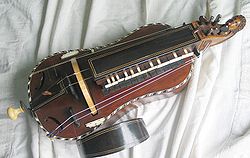''When I first saw the work of Johns and Stella, I was bowled over,'' Mr. Castelli told an interviewer in 1984. ''I just felt sheer, pure enthusiasm. And then you get feedback from a mysterious consensus out there that you are right. Then, of course, you intensify your push and drive. Anyone can discover an artist, but to make him what he is, give him importance, that's really discovery.''
For Each Age, Its Agonies
By FRANK BRUNI
"This is 40" and "Girls" uphold the tradition of deeming your own juncture of life the most significant of all.
Best Buy Founder Casts Shadow Over CEO Search
Best
Buy founder and chairman Richard Schulze has long run the company like a
family business. Now, his long shadow could complicate the hunt for a
new chief executive at a crucial juncture.
A decisive point: climacteric, crisis, crossroad (used in plural),
exigence, exigency, juncture, pass, turning point, zero hour. See
decide/hesitate. A turning point; a crisis: bring matters to a head. See synonyms at crisis.
bowl over
juncture[junc・ture]
- 発音記号[dʒʌ'ŋktʃər]
[名]
1 [U](重大な)時点, 時期, 転機;[C]重大な情勢[局面]
2 [U][C]連結, 接合(点, 線);継ぎ目, 連結状態, 連結物;《文法》(音素の)連接.
at this juncture
この重大事に, この際.
この重大事に, この際.
exigency
(ĕk'sə-jən-sē, ĭg-zĭj'ən-)

n., pl., -cies.
- The state or quality of requiring much effort or immediate action.
- A pressing or urgent situation. See synonyms at crisis.
- Urgent requirements; pressing needs. Often used in the plural.
[名]((形式))
1 ((通例-cies))緊急事態.
2 [U]急務
economic exigency
経済上の急務.
---
hollow
[形]
1 〈物が〉中空の, 中身が詰まっていない;うつろな(⇔solid).
2 〈物の〉表面がくぼんだ;〈ほお・目が〉くぼんだ, 落ち込んだ
hollow cheeks
こけたほお.
こけたほお.
3 〈音・声が〉うつろな, 鈍い, こもった
a hollow booming sound
鈍いブーンという音.
鈍いブーンという音.
4 〈言い訳・世辞・約束・友情などが〉価値[実質]のない, 内容のない, 無意味な, 不誠実な, うわべだけの
a hollow promise
から約束.
から約束.
━━[名]
1 穴, うつろ, くぼみ, へこみ
the hollow of the hand
手のひら.
手のひら.
2 谷間, くぼ地.
in the hollow of one's hand
掌中に, 支配して.
━━[動](他)
1 〈物に〉くぼみをつける;〈物を〉くり抜く((out)).
2 〈物を〉くり抜いて[掘り抜いて]作る((out))
hollow a bowl out of a piece of wood
木をくり抜いてお椀(わん)を作る.
木をくり抜いてお椀(わん)を作る.
━━(自)うつろになる;くぼむ.
━━[副]うつろに
His criticisms rang hollow.
彼の批評はうつろに響いた.
彼の批評はうつろに響いた.
beat a person (all) hollow
((略式))〈人を〉徹底的に打ちまかす[やっつける], 完全に凌駕(りょうが)する.
hol・low・ly
[副]うつろに.
hol・low・ness
[形]
- 1〈木・壁・管などが〉空洞の,中空の(⇔)
- 1a〈平面が〉くぼんだ,〈目が〉落ちくぼんだ,〈頬が〉こけた
- 2〈音・声などが〉うつろな,こもった
- hollow
- うつろに響く
- 3〈人・気持ちなどが〉虚しい,空虚な
- 3a〈物・事が〉実質を伴わない,誠意のない,そらぞらしい
- a hollow
- から約束
- a hollow
- むなしく聞こえる
━━[名]C
- 1くぼみ,へこみ,穴;くぼ地,小谷 Deer Hollow
- 2むなしさ,空虚さ
hollowの慣用句・イディオム
- in the hollow of one's hand
- 手中に収めて,支配して
━━[動]
- 1他〈木・岩などを〉くり抜く;〈容器などを〉(…を)くり抜いて作る(out)≪out of≫;自くぼむ
- 2他自(…を)空洞化する(out)
- hollow
- 国内産業を空洞化する
━━[副]うつろに,むなしく
hollowの慣用句・イディオム
- beat A (all) hollow
- A(人)を打ち負かす
 Amber Vittoria
Amber Vittoria
